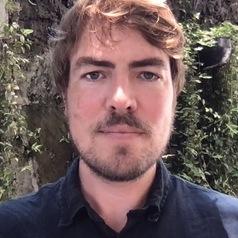
Nathaniel Morris
Honourary Lecturer, Department of History, UCL
Nathaniel Morris is a historian of modern Mexico and Central America. He's particularly interested in Indigenous politics, rural rebellions, revolutionary movements, and drug production and trafficking. Before taking up his current post as an Associate Lecturer, he was a Leverhulme Early Career Research Fellow at UCL, where he carried out a three-year research project on the history of militias in Mexico.
His current book project builds on this research by exploring the ties of history, memory, space and culture that link the armed ‘self defence’ forces active throughout the country today, to the popular paramilitary groups that helped to shape the Mexican Revolution of 1910-40. He has also written extensively about the roots of the modern Mexican drug trade, the contemporary cultural and political impacts of opium production and heroin trafficking on the Indigenous Náayari, Wixárika, O’dam and Mexicanero peoples of Mexico’s Gran Nayar region, and the participation of these same groups in the Mexican Revolution, which was the subject of his first book, Soldiers, Saints and Shamans (https://uapress.arizona.edu/book/soldiers-saints-and-shamans).
You can find him on Twitter/X @MorrisInMexico. Learn more at www.nathanielmorris.co.uk
Less ![]()
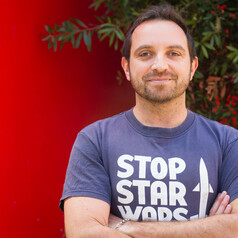
Nathaniel Pelle
Honorary Associate, Sydney Environment Institute, University of Sydney
Nathaniel Pelle is an Honorary Associate of the Sydney Environment Institute where he has contributed to expert submissions on offshore oil and gas regulation and environmental impact assessments.
He is the current Business and Nature Lead at the Australian Conservation Foundation, working to transform the way businesses value and manage their interactions with nature in Australia. He is an experienced sustainability advocate and strategist who has led Australian and international campaigns on sustainable agriculture, fishing, commodity supply chains, and oil and gas exploration. He previously led Greenpeace Australia Pacific’s Oceans and Oil campaigns.
He has studied a Bachelor of Arts (politics, policy and governance) at the University of Newcastle, Master of Peace and Conflict Studies at the University of Sydney, and he is undertaking postgraduate study at the Fenner School, Australian National University.
Less ![]()

Nathaniel Pickering
Lecturer in Research Evaluation and Student Engagement, Sheffield Hallam University
Nathaniel Pickering is a Senior Lecturer in Student Engagement, Evaluation and Research at Sheffield Hallam University. Nathaniel works on internal and external research and evaluation projects that examine what works to improve student outcomes across access, attainment, retention, and progression, with a particular focus on widening participation. Much of his work is focused on using theory-based evaluation to improve programmes of change and impact, and he has recently launched a game-based resource, ChangeBusters, to support university staff in developing a theory of change. Nathaniel is in the final stages of undertaking a PhD at Lancaster University that examines the impact of crisis events on English higher education policy.
Less ![]()

Nathaniel Tran
Ph.D. Candidate in Health Policy, Vanderbilt University
Nathaniel Tran (they/he) is a PhD candidate in the Department of Health Policy and graduate research associate with the Vanderbilt LGBTQ+ Policy Lab.
Their research examines the role of health and social policies in advancing LGBTQ+ health equity. They use a variety of data (e.g. electronic health records, national surveys, and one-on-one interviews) to understand how our laws, policies, and cultural norms impact population health. Their dissertation research exams the role of provider, state, and federal policy on sexual and gender minority aging outcomes such as age-appropriate cancer screening and dementia risk.
Their previous experiences include research at Harvard Medical School/Cambridge Health Alliance, research as a Fulbright Fellow at the University of Buenos Aires, and community outreach at the Dana-Farber Cancer Institute. They hold a bachelor's degree in Gender Studies and Spanish from Tufts University.
Less ![]()

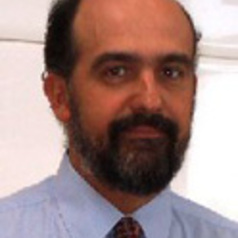
Nauro Campos
Nauro Campos is Professor of Economics and Finance at Brunel University London, a post he has held since 2005. He is also a Research Fellow at IZA-Bonn and a Research Professor at ETH-Zürich. His main fields of interest are political economy and European integration. He has previously taught at the Universities of Bonn, CERGE-EI (Prague), Newcastle, Paris 1 (Sorbonne) and Warwick. He was a Fulbright Fellow at Johns Hopkins University (Baltimore), a Robert McNamara Fellow at The World Bank, and a CBS Fellow at Oxford University. He is a member of the Scientific Advisory Board of the (Central) Bank of Finland and was a visiting scholar (usually more than once) at the IMF, World Bank, European Commission, University of Michigan, ETH, USC, Bonn, UCL and Stockholm. From 2009 to 2014, he was seconded as Senior Economic Advisor/SRF to the Chief Economist of the Department for International Development (during the reigns of both Winters and Dercon.) He received his Ph.D. from the University of Southern California (Los Angeles) in 1997, where he was lucky enough to learn about institutions from Jeff Nugent and Jim Robinson and (more than) happy to be Dick Easterlin’s RA for three years. His research has been supported, among others, by the European Commission, World Bank, Spencer Foundation (Chicago), Department for International Development, and the Economic and Social Research Council.
Less ![]()
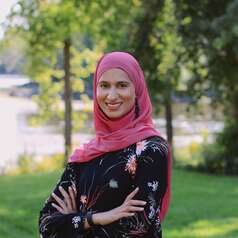
Nausheena Hussain
Doctoral candidate in Philanthropic Leadership, Indiana University
Nausheena Hussain, a social justice activist, is principal of Nissa Consulting, providing services to Muslim-led nonprofits and organizing Muslim philanthropy. Previously, she co-founded and served as the executive director emerita of Reviving the Islamic Sisterhood for Empowerment, a platform established in 2016 for Muslim women by Muslim women to raise up and celebrate their positive community impact. Nausheena is the former deputy director of the Minnesota Chapter of the Council on American-Islamic Relations and currently serves on the board of the St. Paul and Minnesota Foundation. She is co-founder and board secretary of the Brooklyn Park Islamic Center and co-founder of the Muslim Youth Leadership Award. Previously, Nausheena was a committee member of the Headwaters Foundation for Justice Community Innovation, Social Change Fund, and Wellspring Fund. She is a research fellow and candidate for a doctorate in philanthropic leadership at the Lilly Family School of Philanthropy, Indiana University. Nausheena’s leadership has been recognized by the Bush Foundation, Minnesota Council of Nonprofits, and the Minnesota Women’s Press.
Less ![]()

Nav Persaud
Canada Research Chair in Health Justice at the University of Toronto and staff physician at St. Michael’s Hospital in Unity Health Toronto, University of Toronto
Nav Persaud is a family physician in Toronto and the Canada Research Chair in Health Justice
Less ![]()

Navindhra Naidoo
As a former Assistant Director in a jurisdictional Ambulance Service and having served on the executive of the Professional Board for Emergency Care in South Africa, Navin is experienced in health systems management and regulation. His research and policy interest includes critical theory, transformative pedagogy, gender-based violence prevention and evidence-informed decision making that intersects state and civil society interests in emergency care professionalisation and in particular gender-based violence prevention. Navin was immediate past Chair of the Faculty Ethics Committee at the Cape Peninsula University of Technology and co-chair of the Belgium Red Cross First Aid for First Responders Evidence-based Medicine (EBM) project in sub-Saharan Africa and is a certified alternate dispute resolution mediator (Faculty of Law, University of Cape Town). He supervises higher degree research in South Africa and Australia, in the fields of Paramedicine, social inclusivity, health professions education, emergency and forensic medicine. Navin holds: a PhD in Forensic Medicine, a Master of Public Health, Higher Diploma in Education, Bachelor of Technology in Emergency Medical Care and a National Diploma in Ambulance and Emergency Care. More recently, he completed certification from the Royal Melbourne Institute of Technology (RMIT) in Recognising and Responding to Sexual Violence.
Less ![]()

Navjot Gill-Chawla
Doctoral Candidate, Aging, Health and Well-being, University of Waterloo
I am a Ph.D. Candidate in Aging, Health and Wellbeing at the University of Waterloo. My research focuses on exploring the experience of people living with dementia and their care partners in the South Asian community and the importance of culturally inclusive care for dementia.
I completed a Master of Science degree in Physical Therapy from Western University in the Health and Rehabilitation Sciences program. My thesis explored the health-seeking behaviour of community-dwelling older adults related to dimensions of wellness and the implications of health-seeking behaviour for ageing-in-place.
I can be reached at [email protected]
Less ![]()

Ndivhuwo Shivambu
Post Doctoral Research Fellow and Lecturer at the Department of Nature Conservation, Tshwane University of Technology
I have a strong academic and research background, with a focus on zoology and a deep interest in biodiversity conservation, invasive species, and molecular biology. My educational journey began with a BSc in botany and zoology and an Honours degree in zoology from the University of Venda, where I developed a foundational understanding of animal biology and ecosystem interactions. During my MSc at the University of Pretoria, my research centred on the role of the pet trade and scientific laboratories in facilitating the spread of invasive rodents in South Africa. This project allowed me to develop practical skills in field research, data collection, and analysis, and it deepened my understanding of the ecological risks posed by human activities.
For my PhD at the University of KwaZulu-Natal, I expanded my focus to examine the risk associated with exotic mammal species in the South African pet trade, an area of significant importance for both conservation efforts and policy-making. Through this work, I developed my expertise in molecular biology techniques, particularly DNA barcoding, to assess genetic diversity and monitor invasive species. I also became interested in studying exotic bird species that establish feral populations outside their native ranges, which has broader implications for managing invasive species.
Less ![]()
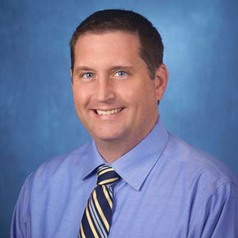
Neal H. Hutchens
Professor of Higher Education, University of Mississippi
Neal Hutchens is a Professor of Education at the University of Mississippi (effective July 2016). Neal previously held faculty appointments at Penn State University and the University of Kentucky. His research focuses on legal issues in higher education, with a key strand of his scholarship dealing with issues related to faculty independence and autonomy. An important extension of his research in this area relates to challenges confronting non-tenure-track faculty. Neal also examines legal questions related to college students’ First Amendment rights. He was the 2015 recipient of the William A. Kaplin Award from the Center for Excellence in Higher Education Law and Policy at Stetson University College of Law.
Neal’s scholarship has appeared in publications that include the University of Pennsylvania Journal of Constitutional Law, Journal of College and University Law, Counselor Education and Supervision, Kentucky Law Journal, West's Education Law Reporter, Journal of Law and Education, and Journal of Student Affairs Research and Practice. Neal is on the editorial board for The Review of Higher Education and for Education Law & Policy Review and is a member of the authors' committee for West's Education Law Reporter. He also serves on the Litigation Committee for the American Association of University Professors. Neal is a member of the National Association of College and University Attorneys. He is also a part of the author team—along with William A. Kaplin, Barbara A. Lee, and Jacob H. Rooksby—for the upcoming sixth edition of The Law of Higher Education.
Less ![]()
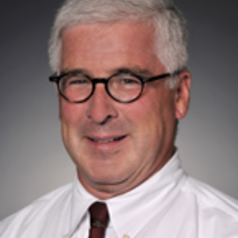
Neal Hartman
Neal Hartman is a Senior Lecturer in Managerial Communication at the MIT Sloan School of Management who focuses on organizational communication issues.
His teaching of management communication and intercultural communication emphasizes working in teams, conflict and conflict resolution, leadership, and cross-cultural communication. Hartman has lectured on cross-cultural, leadership, and organizational communication issues, and has taught in the International MBA Programs at Tsinghua, Fudan, and Zhongshan (Lingnan College) Universities in China. He also serves as co-lead facilitator for CMI-Enterprises, which is part of the Cambridge-MIT Initiative, working with undergraduate students from MIT Sloan, Cambridge University, and other European universities to develop their entrepreneurial skills.
Hartman holds a BA in music theory and composition and an MS in higher education administration from the University of South Carolina and an ABD in organizational communication from the University of Texas.
Less ![]()
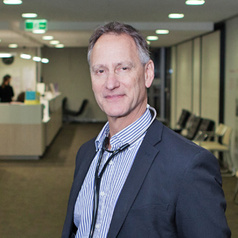
Neale Cohen
Head of Diabetes Clinics, Baker Heart and Diabetes Institute
Associate Professor Neale Cohen FRACP
Associate Professor Neale Cohen is the Head of Diabetes Clinics at the Baker Heart and Diabetes Institute in Melbourne.. He is an endocrinologist and has practiced at the Institute for over 20 years. His research interests include Indigenous diabetes, technology and diabetes and diabetic complications.
Less ![]()
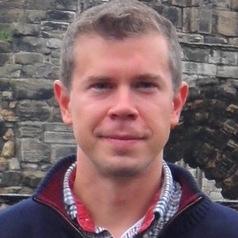
Neall Pogue
Assistant Professor of Instruction, University of Texas at Dallas
Since graduating with a Ph.D. in 2016, I've published two refereed journal articles and one monograph with Cornell University Press.
My research, which was recently published as a monograph by Cornell University Press in April of 2022, is titled The Nature of the Religious Right: The Struggle Between Conservative Evangelicals and the Environmental Movement. This book is an intellectual history that offers the first historical account delineating how politically motivated white conservative evangelicals who make up the religious right ultimately learned to oppose environmental protection efforts including climate change over the last fifty years.
Less ![]()

Nebiyou Yonas Tilahun
Associate Professor or Urban Planning and Policy, University of Illinois Chicago
Nebiyou Tilahun is an Associate Professor in the Department of Urban Planning and Policy at the University of Illinois Chicago. His research focuses on travel behavior, accessibility, and transportation safety, with a focus on equity and aligning policy with user preferences. His recent works examine the safety and equity implications of automated traffic enforcement, young adults' travel behavior, and the transit last mile problem. He earned a Ph.D. in Civil Engineering from the University of Minnesota and has been a faculty member at UIC since 2012.
Less ![]()

Ned Curthoys
Senior Lecturer in English and Literary Studies, The University of Western Australia
Ned Curthoys is a senior lecturer in English and Literary Studies at the University of Western Australia. His research interests include historical fiction, the Bildungsroman or coming of age narrative, and the work of Hannah Arendt.
With Isabelle Hesse he is the co-editor of Literary Representations of the Palestine/Israel Conflict After the Second Intifada (Edinburgh University Press, 2022)
Less ![]()
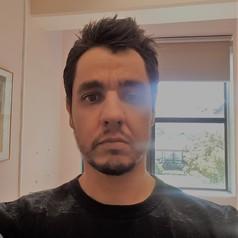
Ned Dobos
Senior Lecturer in International Ethics, UNSW Sydney
I earned a PhD in applied philosophy, specializing in military ethics, from the University of Melbourne. Currently I am a Senior Lecturer in International Ethics at UNSW Canberra, located at the Australian Defence Force Academy. Over the past decade I have held fellowships at the Uehiro Centre for Practical Ethics at Oxford, the MacMillan Center for International Studies at Yale, the McCoy Centre for Ethics at Stanford, and the philosophy department at Georgetown University. I am the author of Insurrection and Intervention: the Two Faces of Sovereignty (Cambridge University Press 2012), and Ethics, Security, and the War-Machine, (Oxford University Press, forthcoming 2020). I am also an Associate Director of the International Society for Military Ethics, Asia-Pacific Chapter.
Less ![]()
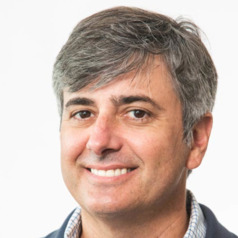
Ned Randolph
Adjunct Professor of Environmental Communications, Tulane University
My work intersects with Cultural Studies, Science Studies, and Environmental History. My dissertation looks at the effect of extractive thinking and power on coastal louisiana. I investigate how certain practices are naturalized through technical discourses upheld by the state’s political economy. I have developed a genealogy of extraction that explicates the role of science and technology in naturalizing industrial practices that have exhausted the region’s natural resources, while creating conditions for intervention that rationalizes those practices. I am a graduate of Tulane University and the University of California Berkeley’s Graduate School of Journalism. I also hold a master’s in creative writing from Eastern Michigan University, where I began transitioning from journalism to teaching.
Less ![]()
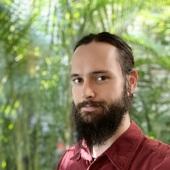
Ned Watt
PhD Candidate, Digital Media Research Centre, Queensland University of Technology
Less ![]()
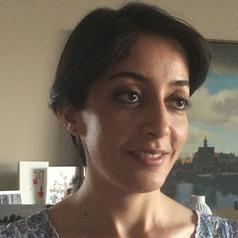
Neda Zolfaghari
Project Coordinator, Pacific Institute on Pathogens, Pandemics and Society, and the Pandemics & Borders Project, Simon Fraser University
I am a Project Coordinator with PIPPS and the Pandemics & Borders Project. I hold a BSc in Molecular Biology and Biochemistry and a Certificate in Genomics from SFU. I am passionate about promoting EDI in science and inclusivity, as well as mentoring the youth to consider a career in STEM, which led me to engage in volunteer work with STEMPacts through the Immigrant and International Women in Science (IWS).
Less ![]()
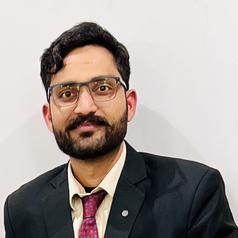
Neeraj Bunkar
PhD Candidate, English, Linguistics and Philosophy, Nottingham Trent University
Neeraj Bunkar is a Doctoral fellow at the Department of English, Linguistics, and Philosophy at Nottingham Trent University, Nottingham, United Kingdom, with a specific interest in Caste, Dalit, Rajasthani folklore, Oral History and Indian Cinema. Bunkar has published a book review and post script in the journal Economic Political Weekly, “Spring Thunder: Adivasi Resistance for ‘Jal, Jangal, Jameen,’” and "Subalternity at the Centre - A Young Diary Demands Radical Change", respectively.
Prior to joining PhD, he obtained BA(H) in Political Science from Kirori Mal College, University of Delhi, and an MA in Social Work with specialization in Dalit, and Tribal Studies and Action from Tata Institute of Social Sciences, Mumbai.
Less ![]()
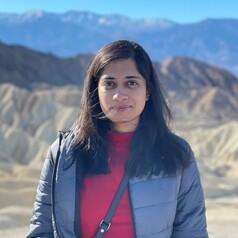
Neeraja Chinchalkar
PhD in Earth and Planetary Science and Exploration, Western University
I am a PhD student in Earth Sciences at UWO, with a research focus in planetary and geological sciences. My research interests are meteorite impact craters, rocks affected by hypervelocity impacts and terrestrial-lunar analogs.
Less ![]()
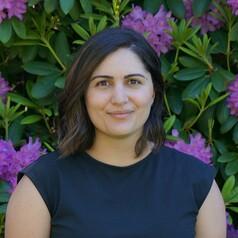
Negin Riazi
Health Promotion Specialist - Knowledge Translation and Exchange, University of British Columbia
Dr. Negin Riazi is health promotion specialist at the University of British Columbia focusing on knowledge translation and exchange within Student Health & Wellbeing.
Dr. Riazi completed her PhD in the School of Kinesiology at The University of British Columbia with Dr. Guy Faulkner. Her research on children's physical activity had two main foci: children’s independent mobility and population-level physical activity initiatives and policy-level interventions. She completed a Postdoctoral Research Fellowship in the Department of Health Sciences at Brock University. Her postdoctoral research focused on the impacts of the COVID-19 pandemic and consequent schools closures/re-openings on adolescent mental health.
She is passionate about knowledge mobilization/translation and has been involved in several knowledge translation projects including: a) the translation of the Canadian 24-Hour Movement Guidelines for Children and Youth (5–17), b) the Early Years (0–4 years), c) independent mobility (see free documentary 'Running Free: Children's Independent Mobility' on YouTube), and more.
Less ![]()

Neil Box
Associate Clinical Professor of Dermatology and Epidemiology, University of Colorado Anschutz Medical Campus
Neil Box is a cancer researcher and community educator with expertise in p53 pathway biology as it applies to skin, hematologic and other cancers who is passionate about increasing public awareness for cancer prevention. Interests include using human subjects and model systems to understand how gene variants work together with environmental exposures to influence normal and disease phenotypes in humans.
Less ![]()

Neil Durrant
Adjunct fellow, Macquarie University
I am an Adjunct Fellow in the Philosophy Department at Macquarie University, with a research interest in applied ethics, specialising in Nietzsche studies, friendship and practical philosophy. I work as the Faculty Executive Director for the Faculty of Arts at Macquarie University. I am the author of Nietzsche's Renewal of Ancient Ethics: Friendship as Contest. I also run an Instagram account for people interested in philosophy and publish a weekly newsletter (http://neildurrant.substack.com) on practical ethics.
Less ![]()

Neil D’Cruze
I am interested in a range of conservation and animal welfare issues. Through my research, I seek to obtain the data needed to inform practical solutions that reduce the suffering of wild animals and protect wild populations.
Since 2004, I have led biodiversity surveys throughout Africa, Asia, Europe and Central America that have generated baseline ecological data for a range of different taxa in previously unexplored areas.
These field surveys led to the discovery of six new species and also secured the first wild photographic evidence of the endangered Visayan spotted deer and Warty pig via remote camera trapping in the Philippines.
More recently, I have also been involved in addressing a number of complex global issues that threaten wild animal welfare and survival including human-wildlife conflict and wildlife trade.
My efforts have helped to improve the welfare and conservation status of a wide range of different species including Sloth bears in India, Civets in Indonesia, Brown bears in Turkey, and Green turtles in the Caribbean.
A professional photographer, images relating to my research have also featured in a number of high profile media publications such as the Guardian, Der Spiegal, Le Monde and National Geographic.
During my career I am fortunate to have lived, worked and travelled in over 40 countries across 6 continents and have published over 30 peer-reviewed scientific articles. I first joined WildCRU as visiting academic in 2014.
My main research areas of interests are: biodiversity surveys, human-wildlife conflict and wildlife trade.
Less ![]()
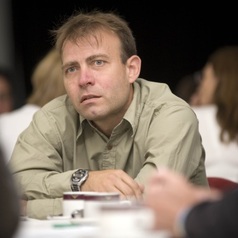
Neil Gordon
Lecturer in Computer Science, University of Hull
I am a lecturer in Computer Science, with research interests covering areas at the intersection of computer science with mathematics, as well as pedagogic aspects around computer science. I am also an advocate of education for sustainable development, which includes developing an apprecation of sustainability issues in the computing curriculum.
Less ![]()

Neil Hammerschlag
Courtesy Faculty, Oregon State University, Fisheries, Wildlife, and Conservation Sciences Department, University of Oregon
Dr. Neil Hammerschlag is a marine ecologist and shark researcher based out of Nova Scotia, Canada. He is also the owner and president of Atlantic Shark Expeditions, a new organization dedicated to providing unparalleled opportunities for the public to safely experience, discover, and help protect the wonders of sharks through ecotourism and citizen science.
Neil’s research centers on the behavioral ecology of the ocean’s top predators under global change. He has published over 150 scientific articles and has projects currently underway in Nova Scotia, Florida, Bahamas, South Africa, and the Galapagos Islands.
Less ![]()
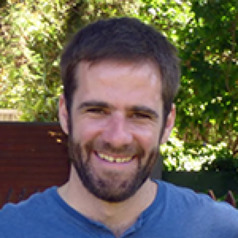
Neil Hart
UKRI Future Leaders Fellow, University of Oxford
Dr Neil Hart is an atmospheric science researcher with particular interest in problems where smaller-scale weather dynamics are inextricably linked with the continental-scale climate processes that give rise to variability and change. His work aims to improve our understanding of the seasonal climate of extreme weather events and to contribute to better understanding of the predictability, both potential and practical, of such events. This work has included contributions to key drivers of the southern African hydroclimate, analysis of South American climate and extremes, and extreme wind risk over the North Atlantic and Europe.
Less ![]()
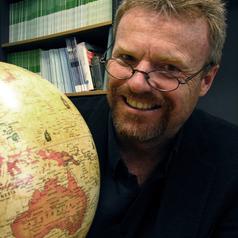
Neil Holbrook
Professor, University of Tasmania
Neil Holbrook is Professor of Ocean and Climate Dynamics in the Institute for Marine and Antarctic Studies at the University of Tasmania, Australia. His interests and expertise are in the ocean's role in climate, ocean and climate variability, extremes, and climate change. Over the past decade, Neil has contributed to advancing our understanding of marine heatwaves. Neil is an elected Fellow of the Australian Meteorological and Oceanographic Society. He is an investigator in the NESP Climate Systems Hub, and ARC Centres of Excellence for Climate Extremes and 21st Century Weather. He is recognised as a Clarivate highly cited researcher (2021-2023).
Less ![]()
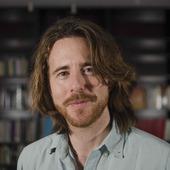
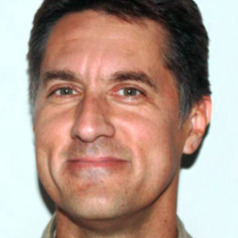
Neil Klug
Senior Lecturer, University of the Witwatersrand
Neil Klug is Senior Lecturer in the School of Architecture and Planning at Wits University.
Less ![]()
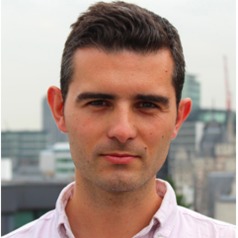
Neil Lee
Neil is an Assistant Professor of Economic Geography at the LSE. He is also Director of the MSc in Local Economic Development and the BSc in Geography with Economics. He joined the Department in 2013, having previously been Head of Socio-Economic Research at The Work Foundation. He holds a PhD in Economic Geography from the LSE and was a visiting scholar at TCLab, Columbia University.
His research considers cities, economic change and the social dimensions of innovation. He is particularly interested in the distribution of the proceeds of growth and the links between innovation and inequality. He has also published on the economics of the creative industries and the link between cultural diversity, innovation and urban economies.
Less ![]()
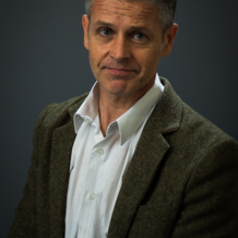
Neil Lunt
Professor of Social Policy, University of York
My undergraduate and postgraduate degrees are in politics (University of Durham) and political philosophy (University of York). I have a PhD in social policy (Massey University, New Zealand).
Following a stint during 1991 as research assistant in education policy, I joined the Social Policy Research Unit here at York. Between 1992 and 1996 I was a research fellow on various externally funded projects focused on the organisation and delivery of health and social services, and disability employment policy.
Between 1997 and 2006 I spent a decade in New Zealand based at Massey University (Auckland) teaching policy studies. I returned to York in January 2007.
Less ![]()
- Market Data





















